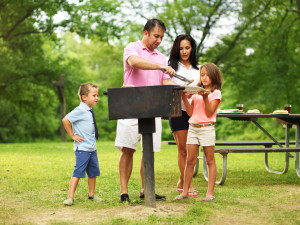Contributor: Bayside Marin clinical team member Ryan Poling, M.A.
 Sarah’s [1] relationship with crack cocaine was complex. It was a parasite: she described crack as a “best friend” who was “destroying my soul.” She thought she had been able to keep her addiction and her family separate but was shocked when one day her two children referred to her as their aunt.
Sarah’s [1] relationship with crack cocaine was complex. It was a parasite: she described crack as a “best friend” who was “destroying my soul.” She thought she had been able to keep her addiction and her family separate but was shocked when one day her two children referred to her as their aunt.
Distressed and dismayed, Sarah spiraled further into her addiction. She used it more intensely and more often. Within one month, two police officers and a Child Protective Services agent came to her house after receiving a report of child neglect, and within two months, Sarah had lost custody of her children. “I knew I was addicted at that point,” she said, “because instead of calling a treatment program, I called my dealer." [2]
Six months later, Sarah had checked herself into a detox program and had been regularly attending addiction group meetings. She was close to receiving her six-month sobriety chip. But she still had not regained custody of her children.
Substance Abuse Is a Big Factor in Removal of Child Custody
Sarah’s story is not uncommon. According to one 2006 study, parental substance abuse was the single most common predictor of children being removed from the home3. And yet, it remains exceedingly difficult for parents who have lost custody of their children to regain custody. In some cases, if children have been adopted or permanently placed with another family, restoration of custody may be nearly impossible.
Losing custody of your children due to substance abuse is a terrifying and stressful experience but, in many cases, you do have options. Keep this in mind: The loss of your children means that officials responsible for child safety have determined the home environment you created is not safe for children.
Maximize Your Chances of Getting Child Custody
 The first step towards creating a safer home environment is by removing the influence of substances from your life. To that end, the following are some steps you can take to maximize your chance of regaining custody of your children:
The first step towards creating a safer home environment is by removing the influence of substances from your life. To that end, the following are some steps you can take to maximize your chance of regaining custody of your children:
Seek legal counsel.
It is important to seek the advice of a child custody lawyer as soon as possible after your children are removed from your home. Make sure to follow your lawyer’s recommendations.
Seek treatment.
The sooner you can check in to a detox program, the better. Make sure to follow up with individual therapy and ongoing groups after you are discharged from your detox facility.
Comply with all court recommendations.
The court may recommend substance abuse treatment, individual or family therapy, addiction groups, or other interventions. It may be difficult to bring yourself to attend therapy or groups.
You may not want to go and it may be difficult to face your substance use head-on, but detox, therapy, and groups are your best chance at creating a safer environment for your children and ensuring you will be a part of their lives.
Wipe the slate clean.
 Most mental health and addiction experts agree that substance use disorders are the result of a complex interplay of genetic, environmental, and personality factors. Removing one of these three components weakens the other two. Since you cannot change your genes and have limited control over your personality, you will need to change your environment.
Most mental health and addiction experts agree that substance use disorders are the result of a complex interplay of genetic, environmental, and personality factors. Removing one of these three components weakens the other two. Since you cannot change your genes and have limited control over your personality, you will need to change your environment.
Over time, you have likely built up a network of friends and acquaintances who use. You likely have suppliers, fellow users, and places you go to use. It is important to cut ties with those relationships. Make sure you have no way to get in contact with your dealer, and spend time building new friendships, perhaps with members of groups you attend.
Reconnect with family and friends.
It is common during one’s spiral into drug addiction to withdraw from relationships and family. Now is the time to reconnect with sober family members and sober friends with whom you may have lost contact. Relationships provide a powerful source of support and a buffer against stress. Lean into those relationships.
Family members and friends will likely have many different reactions to your attempts to rebuild a relationship. They may mistrust you or be angry, afraid, sad, or scared. Though it will be difficult, listen to them openly and nondefensively.
Be patient and take the time to continue working at your relationships with them. The investment you make in those relationships will pay for itself many times over as you continue your journey of sobriety. Keep in mind that the negative reactions they may have towards you are a result of the fact that they care about you deeply and likely felt a great deal of pain having to watch you use substances.
Maintain contact with your lawyer and the court.
 As you make progress towards sobriety, make sure your lawyer and the court know about your victories. Keep records of meetings and therapy sessions you attend, and work closely with caseworkers and other service providers.
As you make progress towards sobriety, make sure your lawyer and the court know about your victories. Keep records of meetings and therapy sessions you attend, and work closely with caseworkers and other service providers.
If you should slip up and use again, talk to your sponsor, therapist, sober friends, and lawyer, and follow your lawyer’s advice. Substance abuse thrives when it is kept secret, but it tends to wither when brought into the light.
Losing custody of your children is a profoundly painful and scary experience, but it can also be a wake-up call. Though regaining custody of your children will likely be a long and difficult struggle, and there is a possibility of never regaining custody, there are things you can do to improve your ability to provide a home where your children can thrive.
References:
- Pseudonym. Names and details have been changed and amalgamated from multiple sources to protect anonymity. Quotes are taken from Janzen, K.J & Melrose, S. (2014). When the worst imaginable becomes reality: The experience of child custody loss in mothers recovering from addictions. Janus Head, 13(1), 176-213. Retrieved from http://www.janushead.org/13-1/janzenmelrose.pdf.
- Ibid., p. 193
- Suchman, N.E., McMahon, T.J., Zhang, H., Mayes, L.C., & Luthar, S. (2006). Substance-abusing mothers and disruptions in child custody: An attachment perspective. Journal of Substance Abuse and Treatment, 30(3), 197-204. doi: 10.1016/j.sat.2005.11.008.
About the Author:
“Loss of Child Custody Due to Addiction: Is There Hope Now That You Are Sober?” was written by Bayside Marin clinical team member Ryan Poling, M.A. Ryan has experience working clinically with a wide range of populations and presenting concerns.
He is a clinical psychology doctoral candidate at Fuller Graduate School of Psychology, where he also earned Master’s degrees in psychology and theology, and was an adjunct professor of psychology at Azusa Pacific University from 2012 to 2015.
About Bayside Marin:
Bayside Marin, located in San Francisco, California, is dedicated to treating not just the substance use disorder, but the whole person. Staffed by a wide range of clinical professionals, including physicians, psychologists, psychiatrists, counselors, dieticians, personal trainers, acupuncturists, massage therapists, and physical therapists, Bayside Marin offers comprehensive, evidence-based treatments and boasts a record of successful treatment.
We provide a full spectrum of care, from intake and detox to discharge planning and aftercare.
The opinions and views of our guest contributors are shared to provide a broad perspective of addictions. These are not necessarily the views of Addiction Hope, but an effort to offer a discussion of various issues by different concerned individuals.
We at Addiction Hope understand that addictions result from multiple physical, emotional, environmental, and genetic factors. If you or a loved one are suffering from an addiction, please know that there is hope for you, and seek immediate professional help.
Published on July 10, 2015
Reviewed and Updated by Jacquelyn Ekern, MS, LPC on January 4, 2021
Published on AddictionHope.com
